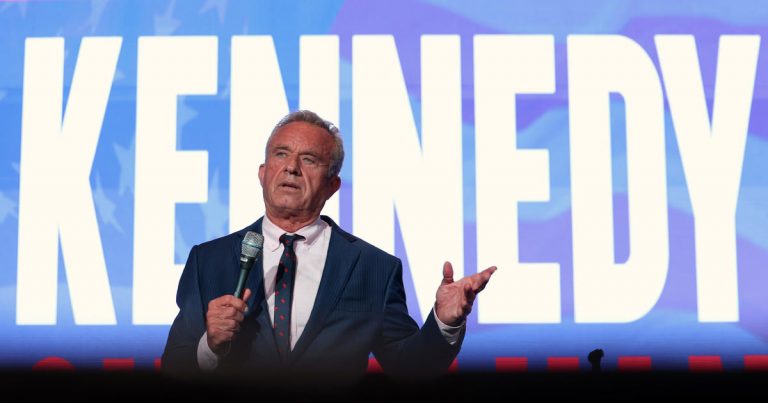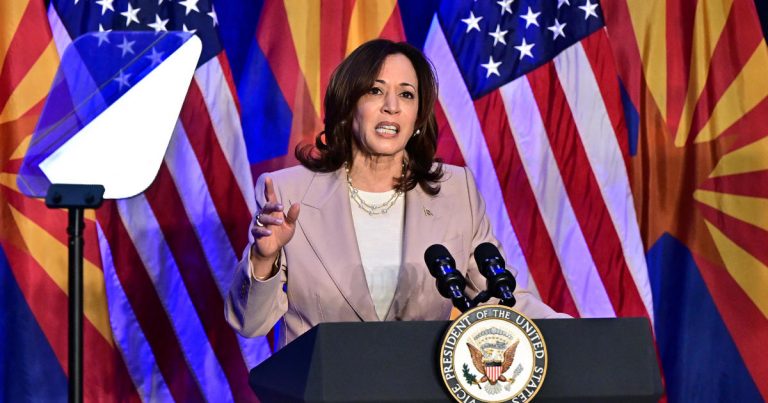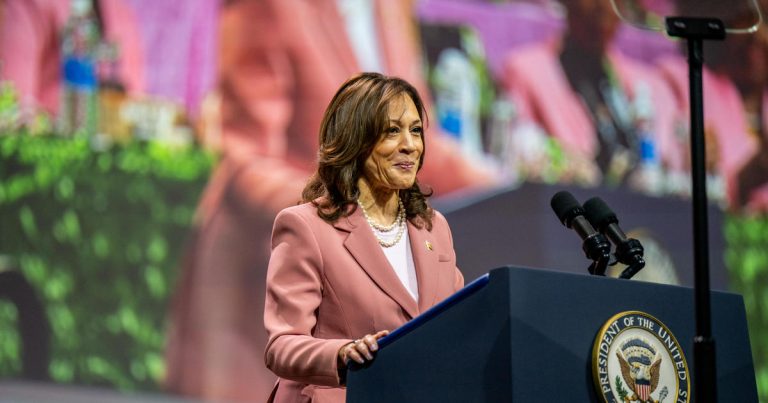Map shows where RFK Jr. is running for office in 2024.
The race for the presidency is heating up as independent candidate Robert F. Kennedy Jr. navigates the challenging process of securing ballot access in key battleground states. Unlike the major party nominees, Kennedy faces unique obstacles in his quest for the White House.
State rules vary, but independent candidates like Kennedy must gather thousands of signatures or obtain support from a minor party to qualify for ballot access. Last October, Kennedy made the bold decision to run as an independent, leaving behind his Democratic primary bid. Since then, both Democrats and Republicans have questioned the impact of his candidacy on the election results.
Recently, Kennedy’s running mate, Nicole Shanahan, revealed that they are considering ending their campaign and throwing their support behind former President Donald Trump. Shanahan expressed concerns that their presence in the race could ultimately help elect Vice President Kamala Harris by drawing votes away from Trump.
According to Dan Mallinson, an associate professor at Pennsylvania State University, Kennedy’s name recognition sets him apart from other third-party candidates. So far, Kennedy has secured ballot access in two battleground states, Michigan and North Carolina, where recent polls show him garnering 2% support, causing a statistical tie between Harris and Trump.
Mallinson emphasized the significance of Kennedy’s presence in closely contested states, noting that even a small percentage of the vote can make a difference. Recent polls from the Pew Research Center and Marquette Law School indicate shifts in support following Kennedy’s entry into the race.
Both Harris and Trump experienced fluctuations in their polling numbers, with Kennedy’s support declining over time. Matthew Foster, a professor at American University, explained that third-party candidates often see a drop in support as the election approaches, as voters tend to gravitate towards the major party candidates.
Despite the challenges, Kennedy’s campaign claims to have met the signature requirements in nearly every state, except for a few outliers. While New York rejected his ballot access due to residency issues, Kennedy is appealing the decision in hopes of securing a spot on the ballot.
As the map indicates, Kennedy enjoys confirmed ballot access in about half of the states, with the remaining states still pending official confirmation. Foster noted that Kennedy’s impact will largely depend on his presence in battleground states, where the election outcome hangs in the balance.
With the race tightening and stakes high, Kennedy’s independent bid adds an element of unpredictability to the 2024 presidential election. As the campaign unfolds, all eyes will be on how Kennedy’s presence influences the final outcome in key battleground states.








